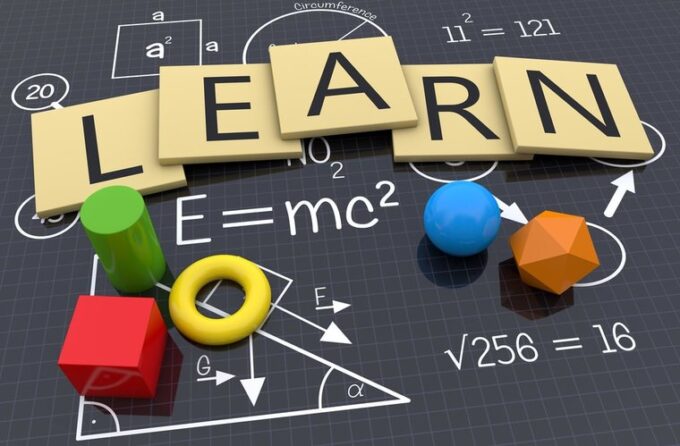In the realm of academic pursuits for college students, mathematics serves as a foundational cornerstone, requiring not only understanding but also proficiency. Excelling in calculus, geometry, and algebra may pose initial challenges, yet with effective strategies and approaches, mastering these subjects becomes achievable. Furthermore, delving into mathematics can offer more than just academic success; it can also provide a gratifying intellectual journey.
In this article, we delve into proven strategies and methods to enhance understanding. It will also foster a deep-rooted appreciation for the elegance of mathematical concepts.
Setting the Foundation: Building Blocks of Mathematical Success
Success in mathematics begins with a solid foundation. This foundation comprises fundamental concepts such as arithmetic, fractions, decimals, and basic algebra.
However, setting the right foundation requires a lot of hard work and patience. Many individuals struggle due to math anxiety, a common phenomenon highlighted by the American Psychological Association. Even educational psychologists acknowledge the prevalence of math anxiety. Research indicates that approximately 20% to 25% of students encounter moderate to high levels of math anxiety.
This psychological phenomenon manifests as tension, apprehension, or fear when confronted with mathematical tasks. Individuals experiencing math anxiety may feel stressed or anxious even when dealing with simple mathematical problems.
To overcome math anxiety, it is essential to master the building blocks at an early age. These building blocks form the scaffolding for constructing more complex mathematical ideas.
Understanding these foundational concepts not only ensures fluency in mathematical operations but also cultivates critical thinking and problem-solving skills. Just as a sturdy building requires a strong foundation, mathematical success relies on a thorough grasp of these core principles.
Students can lay a robust groundwork for their mathematical journey by focusing on these building blocks. They can also pave the way for greater understanding and achievement in higher-level mathematics.
Strategies for Learning and Retention

Source: gettingsmart.com
As reported by WESA, college students continue to face challenges with fundamental math concepts, a trend attributed to the ongoing impact of the pandemic. Colleges nationwide are confronted with this issue as pandemic-related disruptions persist in the campus environment. Particularly in disciplines like engineering and biology, students are encountering difficulties with foundational concepts such as fractions and exponents.
Consequently, a growing number of students find themselves placed in pre-college math programs, commencing their majors at a deficit despite receiving credit for introductory coursework.
This downfall in students’ math grades must be recovered somehow. Here, effective learning strategies play a pivotal role in mastering mathematics.
One such strategy is active engagement, which involves participating in class, asking questions, and discussing concepts with peers. Additionally, breaking down complex problems into smaller, more manageable parts can enhance understanding. Utilizing visual aids, such as diagrams and graphs, can also aid comprehension and retention.
Furthermore, regular practice and review of learned material are essential for long-term retention. By employing these strategies, students can not only improve their mathematical skills but also develop a deeper understanding of the subject.
Problem-Solving Techniques
Problem-solving in math is a skill that transcends mere computation, requiring a blend of creativity, logic, and perseverance. Effective problem-solving techniques involve breaking down complex problems into manageable steps, identifying key information, and selecting appropriate strategies.
These techniques include trial and error, pattern recognition, working backward, and drawing diagrams. Moreover, cultivating a growth mindset, where challenges are viewed as opportunities for learning and growth, can enhance problem-solving abilities.
By honing these techniques, students can confidently tackle mathematical problems and develop a versatile skill set applicable across various disciplines.
Resources for Additional Support

Source: edubirdie.com
A variety of resources are available for students seeking further assistance in mastering college mathematics. Online platforms offer interactive lessons, practice exercises, and video tutorials catering to diverse learning styles. Tutoring services provide personalized guidance, helping students navigate challenging concepts.
Proprep states that online tutoring platforms also provide personalized assistance from experienced tutors specializing in various mathematical topics. Expert tutors can offer tailored explanations and targeted practice to address specific areas of difficulty.
Expert online tutors can provide clear explanations and interactive problem-solving sessions for students grappling with advanced calculus concepts like the squeeze theorem. They can also guide you using a squeeze theorem calculator to solve complex mathematical principles. They provide instant solutions and visual representations to deepen comprehension and improve problem-solving skills.
Textbooks, workbooks, and online forums can also be valuable supplementary resources. College math clubs and competitions offer opportunities for enrichment and peer collaboration.
Moreover, seeking guidance from teachers, mentors, and academic counselors can provide tailored support. By leveraging these resources, students can enhance their understanding and proficiency in mathematics, paving the way for academic success.
Test Preparation Strategies
Effective test preparation is essential for success in college mathematics. One key strategy is to familiarize oneself with the test format and types of questions typically asked. Taking practice tests can pinpoint weak areas and offer a chance for focused study.
Establishing a study schedule and setting clear goals can also enhance time management skills. Reviewing notes, textbooks, and class assignments, as well as seeking clarification on challenging topics, can enhance understanding and retention. Moreover, practicing mindfulness and relaxation techniques can alleviate test anxiety. By employing these strategies, students can approach their mathematics exams with confidence and achieve optimal results.
Overcoming Challenges and Building Confidence

Source: linkedin.com
The Seattle Times highlights that nearly 40% of students who participated in Washington state’s standardized math assessment reached grade level. This contrasts with only 30% in the 2020-21 academic year, which occurred during the pandemic’s onset. It means the grades are improving slowly due to challenges that are on their way. In the journey of mastering college mathematics, challenges are inevitable but surmountable.
Embracing a growth mindset is essential when encountering challenges. It allows individuals to perceive setbacks as opportunities for personal development and advancement. Establishing attainable goals and acknowledging small achievements can significantly enhance confidence and drive.
Seeking help from teachers, peers, or tutors when faced with difficult concepts can provide clarity and support. Moreover, perseverance and regular practice are key to overcoming challenges and building proficiency. By embracing challenges as stepping stones to success and maintaining a positive attitude, students can cultivate resilience and confidence in their mathematical abilities.
In conclusion, success in college mathematics is attainable through diligent practice, effective study habits, and a positive attitude. By implementing proven techniques and problem-solving strategies and utilizing available resources, students can excel in math. Through this journey, students will cultivate a profound understanding and appreciation for the subject.
Overcoming challenges and fostering confidence are pivotal elements of this process. With perseverance and a growth mindset, students can adeptly navigate the intricacies of college mathematics.



![Types of Artificial Intelligence Algorithms You Should Know [A Complete Guide] Types of Artificial Intelligence Algorithms You Should Know [A Complete Guide]](https://galeon1.com/wp-content/uploads/2022/11/artificial-intelligence-algorithms-211x150.jpg)



